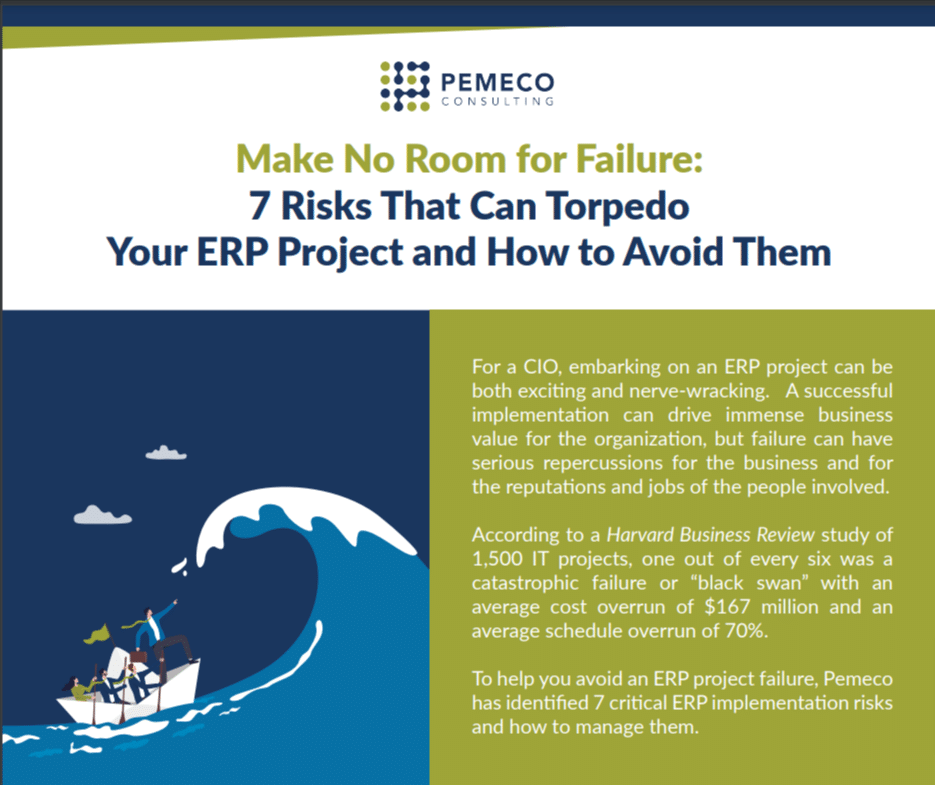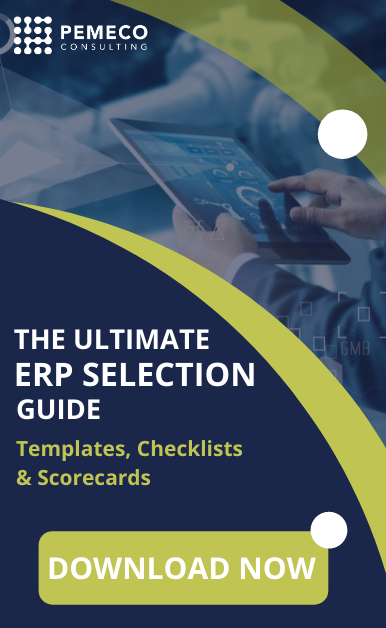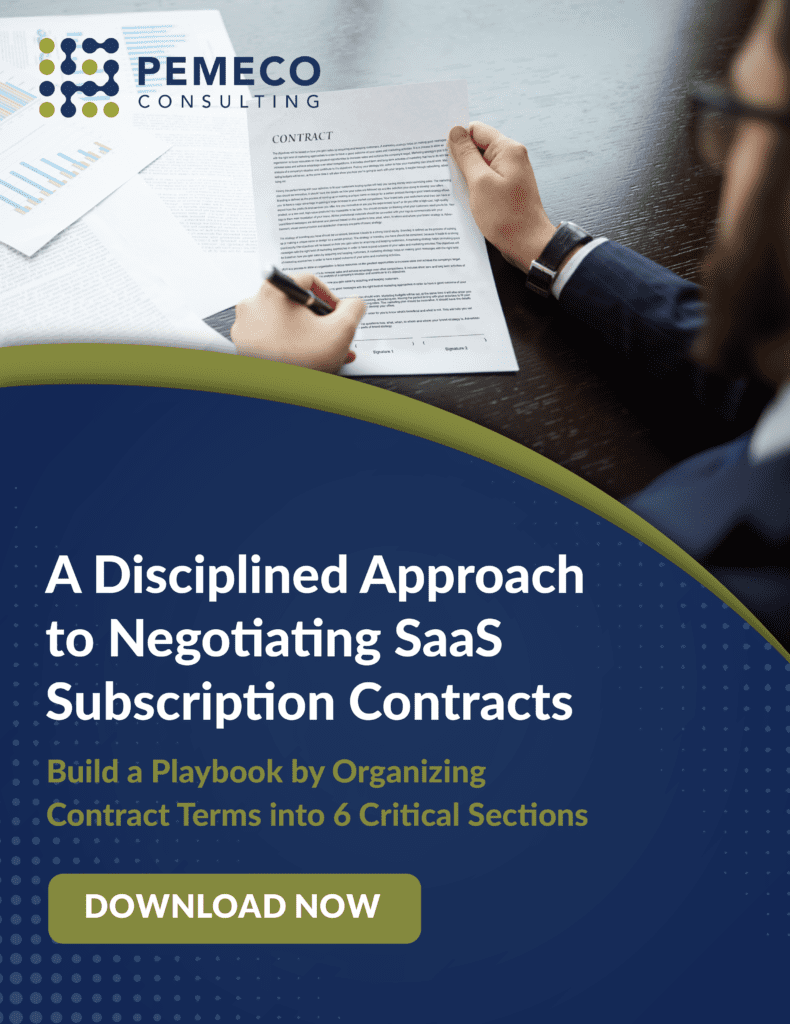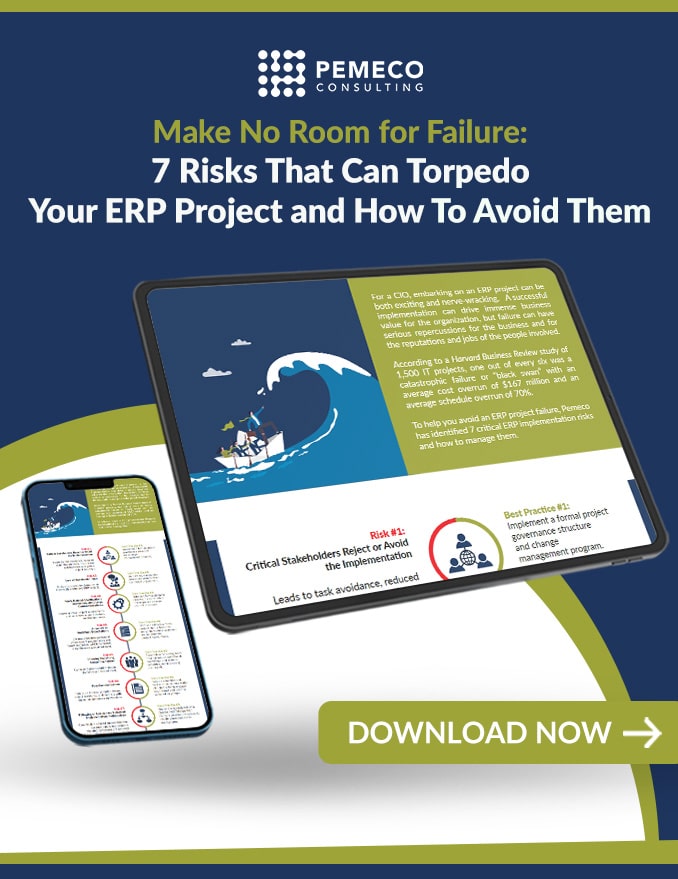Today, many businesses are implementing “Lean manufacturing” strategies, to build products to order instead of maintaining large inventories and overstocking product while attempting to create customer demand.
This SYSPRO article has been prepared to outline how business software – in particular, an enterprise resource planning system (ERP) – can support a Lean manufacturing model.
Lean is a manufacturing model that eliminates waste, fine tunes inventory requirements and reduces lead times. Re-engineering traditional manufacturing methods through the use of Lean concepts results in a more collaborative supply chain, rapid order turnaround, streamlined deployment of resources, profitable contracts and, last but not least, greater customer satisfaction.
Enterprise software can assist in making information, decisions and materials flow faster throughout an organisation. Thus, the faster the company can respond to customer orders or adjust to changes in customer demand and market competitive conditions, then the faster the company can successfully implement a demand or “pull” strategy.
As well as raising quality levels and reducing costs, Lean manufacturing enables companies to realize significant improvements in cycle times (lead times), customer service (fill rates), throughput and inventory reduction.
This article outlines five main Lean principles and how software can support these:
- Supporting “Flow”
- Supporting “Pull”
- Understanding What Customers Value
- Value Stream Analysis
- Supporting “Perfection”
Software Benefit 1: Supporting “Flow”
As enterprises become Lean, customers will require more frequent shipments and in smaller batches. This demands maximum efficiency throughout the shipping process, including identifying what to ship, from where to ship, picking the product, interfacing with carriers for freight information, tracking information and customer billing.
With Just-in-Time methodologies, many manufacturers are faced with constantly changing blanket orders, small run repeat orders and delivery schedules that are shorter than material lead-time. Enterprise business software, such as SYSPRO, supports JIT manufacturing and supply chain flow through its integration of procurement with production schedules as well as customer order monitoring for optimum delivery schedules.
A well-balanced Lean system focuses on maximizing throughput, and the takt time — or pace — of manufacturing to eliminate bottlenecks and WIP buildup. The goal of takt time is to achieve a continuous operational flow.
“We went from large batches to single piece flow. Every one of our ARGOs is sold before it’s made—Single-piece flow has reduced our product obsolescence, warranty and rework.”
Ontario Drive & Gear Limited (ODG), Manufacturer of all-terrain vehicles
Key areas where enterprise software can support Lean manufacturing initiatives are accounting, customer service, supplier management, demand smoothing, production planning, scheduling and data analysis. Demand planning applications can help businesses become Lean by offering advanced forecasting algorithms to improve efficiency and production flow by predicting and leveling load.
Repetitive manufacturing modules can be used to process work orders more efficiently. Software-driven Kanban can generate replenishment signals for bins by back flushing, resizing and sequencing to reduce work in progress (WIP).
Supplier integration through Internet-based portals and real-time communication to pass Kanban information from the shop floor to suppliers can improve supply chain flow.
Vendor-managed inventory and Web-based portal technology make it easier to collaborate with suppliers. Instead of sending information back and forth, customers and suppliers can access inventory balances and future demands through a portal or be notified electronically.
Software Benefit 2: Supporting “Pull”
Enterprisebusiness software supports the “pull” concept, where customer orders are required to pull parts through the system before part quantities are released to run on the floor. In a pull system, finished goods are not built to stock. No work is performed unless a part is required downstream.
Enterprisebusiness software can recommend ideal lot sizes so that the least wasteful amounts can be released to production cells. ERP systems, such as SYSPRO, provide users with the ability to determine the best lot sizes to run based on customer demands, finished goods inventory and what is already running on the shop floor.
ERP systems optimize the sequencing of part releases to minimize setup times while meeting delivery requirements and support JIT delivery of raw materials based on the scheduling sequence to minimize material warehousing.
One of the biggest struggles for suppliers is demand visibility. Forecasting software with sophisticated algorithms, such as those in the SYSPRO Inventory Optimization solution, can leverage available history to forecast future sales for planning purposes
Dynamic analyses, approval workflow and tabular and graphical reports enable easy analysis and the ability to streamline and optimize inventory forecasting.
Planning and scheduling software enables a plant manager to efficiently schedule production to maximize the use of workers and machinery to meet promised order delivery dates. Sales personnel can give accurate lead times, logistics can plan on-time deliveries and production personnel can make accurate and attainable commitments.
The “what if” capability of planning and scheduling modules enables plant managers to view the consequences of any production changes by considering the real-time dynamic capacity of plant resources.
Enterprisesoftware, like SYSPRO, enables continuous improvement because they measure plant operations, compare them to past performance and future goals and present the results to the people who can make adjustments to those operations.
Software Benefit 3: Understanding What Customers Value
Software must provide flexibility in the way orders are taken, the options customers can choose, how and when products are shipped, how products are sourced and delivered, how customers track or change their orders and how they are billed.
Many of these issues affect distributed resources across the enterprise. They can include remote production sites, distribution centers, wholesalers, carriers, brokers and suppliers.
Enterprisesoftware builds and maintains a powerful library of customer information, including credit limits, shipping addresses and order history. These records help companies to speed up ordering and delivery cycles.
By identifying both who the customer is and how they define value, Lean manufacturing allows companies to focus resources on adding value. By manufacturing to customer demand, driving out waste and continuously improving processes, companies can satisfy customers, employees and shareholders alike.
Software Benefit 4: Value Stream Analysis
Enterprisebusiness software, such as SYSPRO, can integrate all departments and companies within the enterprise and enable real-time sharing and usage of information for 360° visibility into all supply chain operations.
This visibility will enable organizations to see where waste exists in current business processes throughout the company, from customer processes through manufacturing to distribution. This visibility is necessary for an accurate Value Stream Analysis and for the formulation of the right strategy for a company to eliminate waste and become Lean.
Value Stream Analysis process involves creating a current-state map of the value stream, followed by a future-state map from which specific action plans are developed.
By leveraging information technology, routine business operations can be simplified, rational procedures established and repetition reduced, thereby accelerating core business processes and response time to customers.
The right enterprise business software solution decreases data inaccuracy and redundancy, increases visibility and ensures that key strategic and tactical decisions are made from the most up-to-date and accurate information.
Software Benefit 5:Supporting Perfection
Enterprisebusiness software systems, like SYSPRO, are the key enabling technology for continuous improvement because they measure plant operations, compare them to past performance and future goals and present the results to the people who can make adjustments to those operations.
Business Intelligence applications, like SYSPRO Analytics, offer real-time analysis of key events and reduce data redundancy and inaccuracy, ensuring that key strategic and tactical decisions are made from up-to-date, accurate information that everyone in the company understands. In a Lean manufacturing environment of continuous improvement, everyone is responsible for continually improving quality and eliminating waste until the company reaches “perfection”.
The most successful manufacturers today are those with the ability to meet customer delivery schedules while maintaining minimum levels of inventory.
To achieve this, manufacturers need real-time interoperability with their customers and suppliers and 360° inventory visibility across the entire enterprise. Once manufacturers have confidence in their delivery schedules, they can stop overcompensating for inbound delivery problems with excess inventory and they can ship from multiple warehouses without keeping all finished good items in each location. In addition, sales people can be confident in their ability to quote more accurate promise dates. Once the order has shipped, customers should have the ability to track its shipment status.
This article was provided by SYSPRO. To contact Syspro to learn about its ERP solutions, please contact Odete Passingham at [email protected] or at 1-888-259-6666.
For an independent review of whether SYSPRO or any other software might be right for your business, please contact us at [email protected] or at 1-866-282-5899. Pemeco Consulting is a 100% independent, impartial and vendor-agnostic consulting firm that specializes in ERP.
This Article was reproduced by Pemeco Consulting with the express authority of SYSPRO. Pemeco Consulting provides this content to help educate ERP buyers on prospective vendors. Pemeco Consulting is 100% independent, impartial and vendor-agnostic. Pemeco does not warrant the accuracy of the content contained herein, nor does it endorse the specific product(s) referenced herein.






